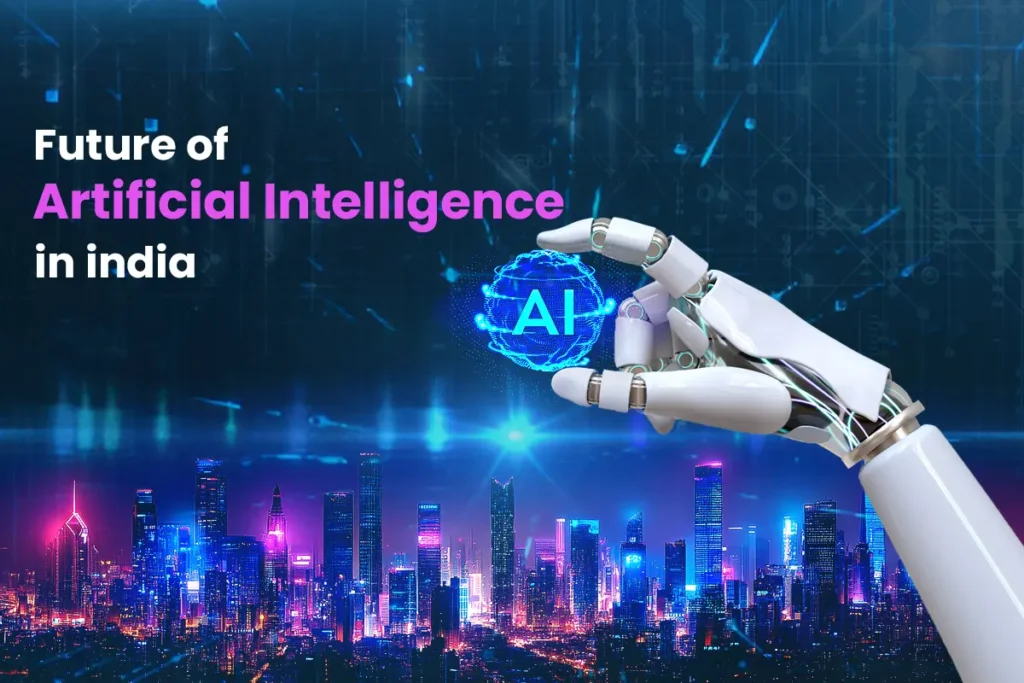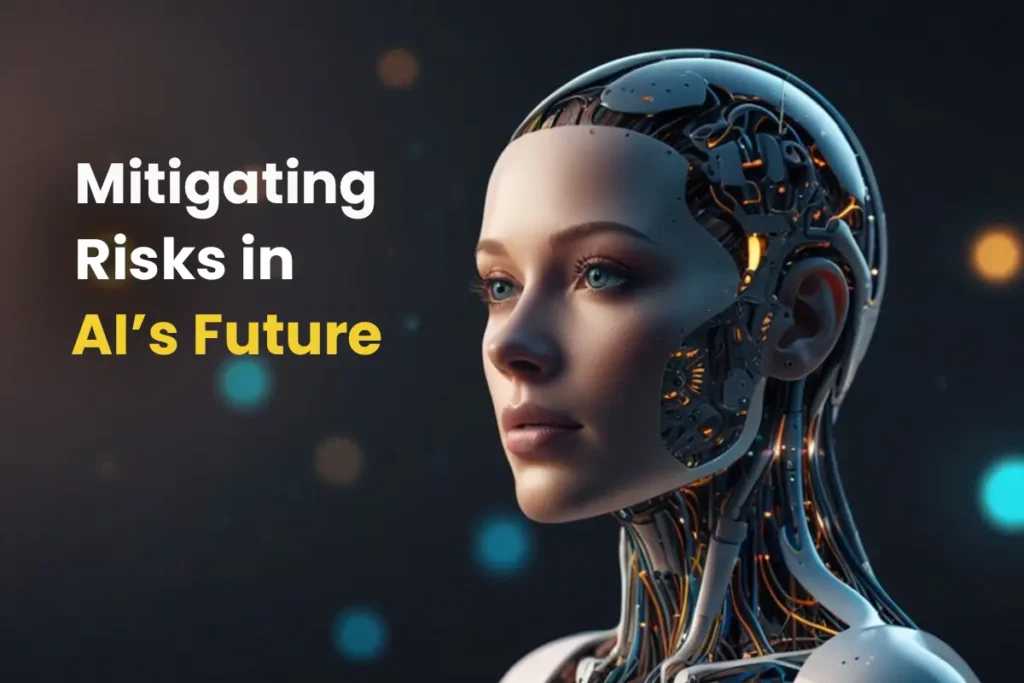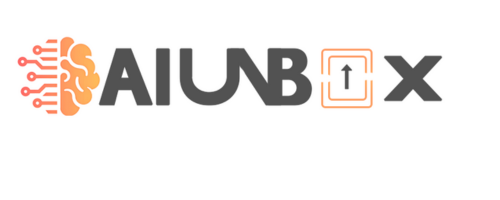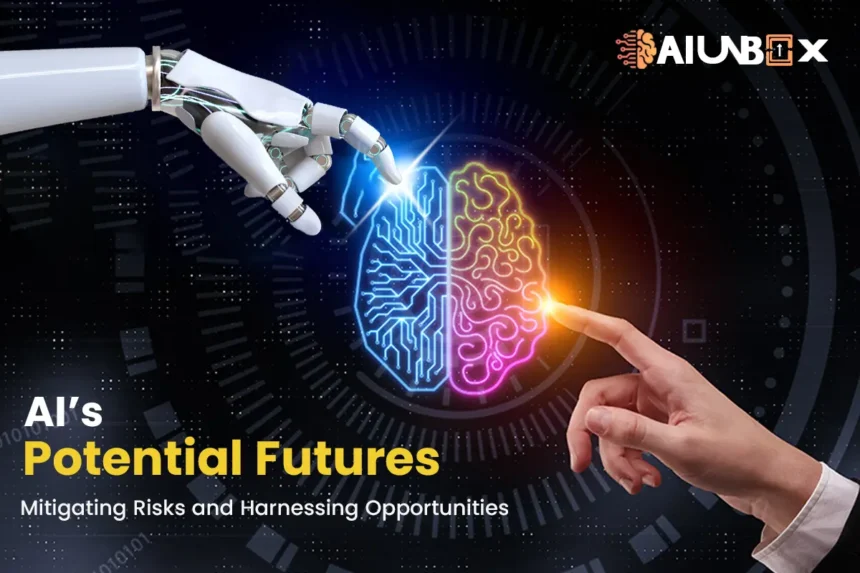The rapid development of artificial intelligence technology currently transforms both industries and economies and everyday social practices at an extreme rate. Understandable AI progress in the future requires a clear concept of its developing scope. Artificial intelligence reshapes both the healthcare sector alongside multiple industrial sectors as it transforms the entire global framework. The power of AI requires responsible management to minimize threats as people should optimize its opportunities.
We will examine probable AI destinies alongside new technological developments as they affect India’s technological environment in this article. This text explores artificial intelligence future concepts along with Indian artificial intelligence forecasts and fundamental areas that will provide progress for the following age.
The Future of AI: A Dual Perspective
AI’s forthcoming direction can follow two different directions:
The integration of advanced technological control through AI systems generates efficiency while using automatic procedures to alleviate workloads and generates modern employment opportunities and advances technological breakthroughs within every business field.
Dangerous Dystopian Conditions Develop when ethical issues and worker replacement alongside deepfake violations and biased computing systems create negative outcomes.
The successful implementation of beneficial AI requires a proper equilibrium between regulation along with innovation so responsible development achieves maximum AI scope in the forthcoming future.
Key AI Innovations Shaping the Future
1. AI in Healthcare: Personalized & Predictive Medicine
AI-driven diagnostics, robotic surgeries, and personalized treatment plans are making healthcare more accessible and efficient. Machine learning algorithms can predict diseases before symptoms appear, leading to early intervention.
2. Autonomous AI: The Rise of Self-Learning Systems
Future AI models will evolve beyond human training, becoming self-learning and self-improving. This will revolutionize automation, decision-making, and problem-solving capabilities.
3. AI & Quantum Computing: A Technological Synergy
Quantum computing will take AI to the next level by solving complex problems at an unprecedented speed. This advancement could redefine data security, scientific research, and financial modeling.
4. AI-Powered Smart Cities
AI will play a key role in urban development by optimizing traffic management, energy consumption, and public safety through IoT-based smart solutions.
5. Creative AI: Redefining Content Creation
From generating art and music to writing and filmmaking, AI is already influencing creative industries. Future AI systems may collaborate with humans to produce groundbreaking content.
These advancements reflect the broad scope of AI in the future, influencing every industry and daily life.
Future of Artificial Intelligence in India
Indian Artificial Intelligence developments continue to escalate due to government startups and a developing digital transformation framework. Multiple aspects suggest that the future of artificial intelligence in India will be positive.

1. Government Initiatives
Indian government policies such as the National AI Strategy (NITI Aayog) together with Digital India fulfill the goal of integrating artificial intelligence into various sectors including governance and healthcare along with education.
2. AI in Agriculture
AI technology enables farmers to sense upcoming weather conditions while spotting plant diseases and managing irrigation practices which combined leads to greater agricultural output.
3. AI & Education
The educational transformation of India’s learning system emerges through the use of Artificial Intelligence for individualized educational contents. Online educational systems use artificial intelligence to shape instruction according to each student thus delivering better teaching effectiveness.
4. AI in Finance & Banking
Fintech companies together with Indian banks utilize AI technology to fight fraud while delivering custom bank solutions and conducting risk evaluations that brings more people into the financial economy.
5. AI in Healthcare
The large number of people in India is motivating the nation to use AI-powered telehealth services along with predictive analysis and robotic surgical systems in order to provide better healthcare solutions.
The distinctive tendencies prove India leads AI adoption thus demonstrating how artificial intelligence in this nation will mold economic and societal transformations.
Key Areas of Artificial Intelligence
Understanding the key areas of artificial intelligence helps in identifying its impact across industries.
1. Machine Learning (ML) & Deep Learning
These subsets of AI enable computers to learn from data, improving their performance over time. Applications include fraud detection, speech recognition, and recommendation systems.
2. Natural Language Processing (NLP)
NLP enables machines to understand, interpret, and respond to human language. AI-powered chatbots, voice assistants, and language translation tools rely on NLP advancements.
3. Computer Vision
This area focuses on enabling machines to interpret and process visual information. Applications include facial recognition, medical imaging, and autonomous vehicles.
4. Robotics & Automation
AI-powered robots are transforming industries such as manufacturing, logistics, and healthcare. From automated warehouses to robotic-assisted surgeries, AI-driven robotics is redefining efficiency.
5. AI in Cybersecurity
With the rise of cyber threats, AI-driven security systems can detect anomalies, predict attacks, and safeguard digital assets.Each of these areas of artificial intelligence contributes to a smarter, more efficient future.
Mitigating AI Risks: Ethical Considerations & Solutions

Addressing Ethical Concerns in AI Development
The revolution in industries by AI systems demands the resolution of ethical challenges for building responsible and fair technological developments. Unrepresentative datasets used in AI algorithm training cause both biased and discriminatory results because of their inherent patterns. AI systems require development through the use of diverse and inclusive data collections for prevention of unfair outcomes.
Two of the major problems facing society today are job displacement as well as the responsibility to address discrimination and bias in AI technology. AI elevates operational performance yet its automated capabilities might eliminate work positions requiring retraining and skill development of existing workers at an extensive level. Agencies and national authorities need to fund AI-based learning programs because they must prepare their workforce to adapt to emerging roles.
Data privacy stands as an essential problem which needs addressing. AI systems that handle extensive personal data collections remain at risk for security breaches along with possible misuses of collected information. The protection of user privacy requires both new laws for data protection and clear AI transparency measures.
Machine learning systems face numerous threats because of their improper utilization which leads to both deepfake propaganda distribution and cyber warfare practice and universal surveillance methods. The implementation of strict regulations coupled with ethical rules constitutes a necessity to stop AI from being utilized for destructive objectives.
Such proactive mitigation of ethical dilemmas will create a future where AI helps humanity achieve maximum possible scope of AI application without creating new issues and with equal treatment of technological progress.
Conclusion: The Road Ahead for AI
Future AI applications will create extensive transformations which will affect all aspects of industries and economies together with social structures. AI will permanently shape the world through its effects on healthcare along with finance in addition to education and governance. The essential factor for successful AI development requires responsible practices which eliminate potential risks to achieve maximum benefits.
AI development will transform India into a world-leading force that creates AI-based solutions. Artificial intelligence in India will grow significantly through startup developments combined with governmental policies and scientific research that creates advanced technological progress.
AI’s future development will enable human empowerment through smart and safer life solutions along with efficient pathways because of continuous innovation and ethical analysis and regulatory measures.
FAQs
1. Research current tendencies of artificial intelligence development for the upcoming future?
The emerging artificial intelligence concepts for the future include AI-driven personalized healthcare along with self-learning AI systems and AI-powered cybersecurity and quantum AI.
2. Will AI create positive or negative economic effects for India?
iTech will boost India’s economy through improved sector efficiency which includes agricultural development and healthcare services, banking services and educational expansion while leading to fresh employment opportunities.
3. The fundamental sectors of artificial intelligence constitute what fields?
Artificial intelligence consists of five critical domains: Machine Learning, Natural Language Processing, Computer Vision, Robotics and AI in Cybersecurity that create vital infrastructure for advanced technology development.

